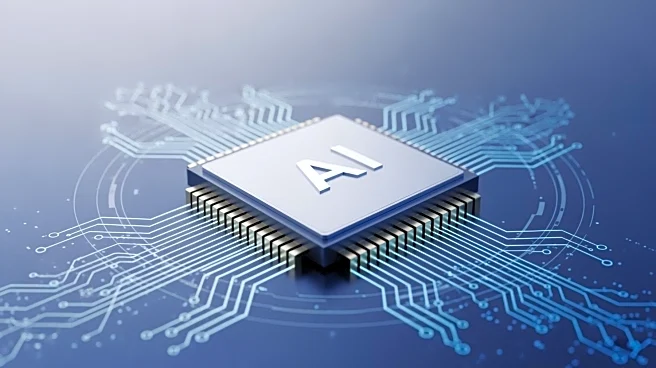What's Happening?
Andrej Karpathy, a founding member of OpenAI, has expressed concerns about the current state of artificial intelligence, particularly regarding the industry's progress towards artificial general intelligence (AGI).
In an interview with podcaster Dwarkesh Patel, Karpathy stated that the development of AGI is moving slower than anticipated, despite advancements in large language models. He cautioned that many companies are overstating AI's capabilities, which could harm the field. Karpathy described the timeline for achieving AGI as being at least a decade away, contrasting with more optimistic predictions from other tech leaders. He emphasized that while AI models are impressive, they require significant improvements in areas such as long-horizon planning and structured reasoning.
Why It's Important?
Karpathy's assessment is significant as it challenges the prevailing optimism in the tech industry regarding the rapid development of AGI. His comments may influence investors and companies to reassess their expectations and strategies in AI development. The potential overestimation of AI capabilities could lead to misallocated resources and unrealistic business models. Furthermore, Karpathy's critique highlights the need for more robust safety practices and research to address unresolved technical challenges. This could impact public policy and regulatory approaches to AI, as stakeholders may push for more cautious and measured advancements in the field.
What's Next?
The tech community is likely to engage in further debate and analysis following Karpathy's remarks. Companies may need to adjust their timelines and investment strategies in AI development. There could be increased scrutiny on AI agents and their reliability, prompting further research and development to enhance their capabilities. Policymakers might consider implementing stricter regulations to ensure safe and ethical AI practices. Additionally, Karpathy's comments may lead to a reevaluation of public demonstrations and benchmarks used to measure AI progress, focusing on addressing fundamental challenges rather than showcasing narrow optimizations.
Beyond the Headlines
Karpathy's critique of AI agents raises ethical and security concerns, as unreliable systems could lead to vulnerabilities and security breaches. The industry's focus on AI agents as autonomous digital workers may need to be reconsidered, emphasizing the importance of developing systems with robust reasoning abilities and tool usage. This could lead to a shift in AI research priorities, focusing on long-term safety and reliability rather than short-term performance metrics. The discussion may also influence cultural perceptions of AI, encouraging a more realistic understanding of its capabilities and limitations.








